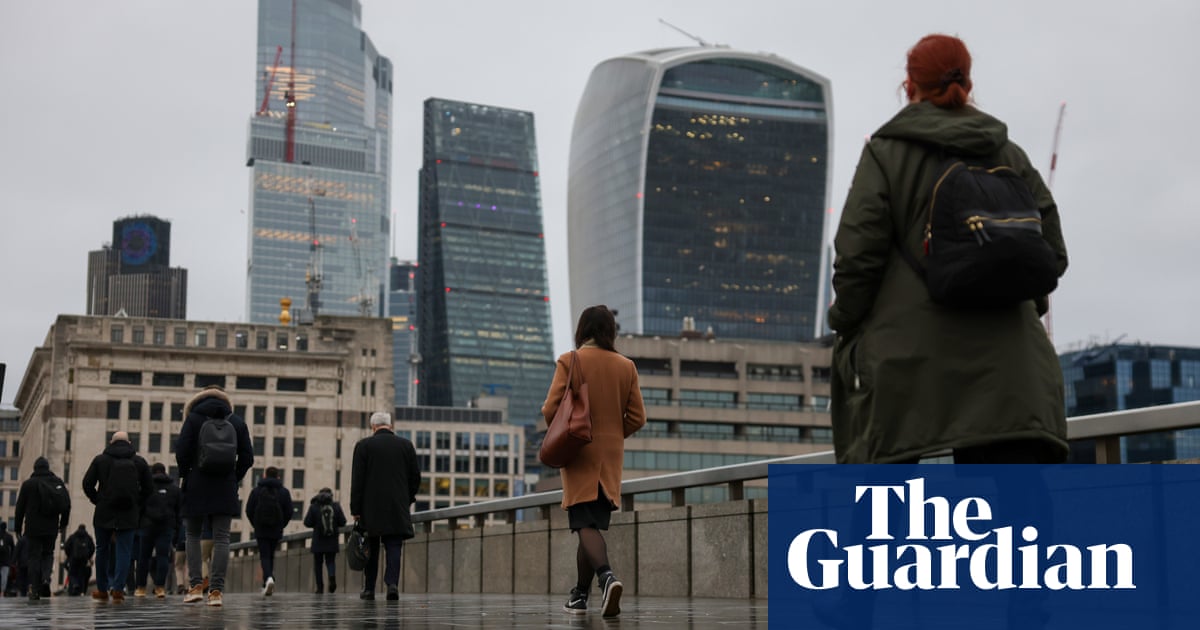
The government’s official forecaster has slashed its predictions for economic growth over the next two years, and warned that inflation could take until 2025 to come back to the official 2% target.
In an updated financial health check to accompany the autumn statement, the Office for Budget Responsibility (OBR) said a more resilient economy this year had handed the chancellor a £27bn budget windfall, but it warned of a more difficult outlook up to 2028 than previously forecast at the time of the budget in March.
Gross domestic product (GDP) will rise this year by 0.6%, beating the previous forecast of a 0.2% dip, the OBR said.
However, growth will then be more muted than expected: 0.7% in 2024 and 1.4% in 2025. The OBR had predicted in March there would be a rebound to 1.8% in 2024 and 2.5% in 2025.
Inflation is now not expected to come back to the Bank of England’s official 2% target before the first half of 2025, a year later than previously forecast. An inflation rate that was due to average 0.5% next year will instead be 2.8%, the OBR said.
In disappointing news for homeowners, the OBR forecast house prices would grow by 0.9% in 2023 but then fall by 4.7% in 2024, as interest rates remain higher for longer.
Lower economic growth and higher inflation than previously expected would limit the government’s room for manoeuvre over the next five years, it said.
The OBR calculated Hunt had spent his entire £27bn windfall on business tax cuts, inflation-linked uplifts to benefits, and on a 2p cut in employee national insurance, which is due to take effect from 6 January.
However, a more buoyant economy in 2023, which generated tax receipts far in excess of previous forecasts, and lower debt payments courtesy of a fall in projections for interest rates, allowed the government more financial headroom.
Hunt said that a tight settlement with government departments, limiting their spending over the next five years, would also play a role in allowing the government to bring down the annual spending deficit in each of the next five years.
A deficit this year of 4.5% of GDP is due to fall to 2.7% in 2025 and to 1.1% in 2028-29.
Many economists have criticised the Treasury for focusing on reductions in the annual spending deficit rather than measures to boost growth, including public investment.
A freeze in the cash spent on public investment will prove to be a blow to the economy’s long-term health, the Institute for Fiscal Studies (IFS) said.
after newsletter promotion
The IFS’s director, Paul Johnson, said: “We already have public sector investment well below that in most comparable countries. That is not good for growth.”
Private sector businesses will benefit from a £9bn commitment to make permanent “full expensing”, which allows firms to offset purchases of plant and machinery against profits, lowering their tax bills.
The OBR said this move would increase private sector investment by only £3bn. All the cuts in business taxes will amount to a £20bn loss of income by 2028.
Meanwhile, welfare-to-work programmes, including childcare subsidies, could add 200,000 people to the workforce by 2028.
Johnson posted on X (formerly Twitter): “Quite something that benefit changes plus childcare and other reforms announced in March budget judged by OBR to increase numbers in work by 200,000.”
Though he added: “Most benefit reforms which have increased numbers in work have very largely got them into low-paid, part-time work, still on in-work benefits.”
